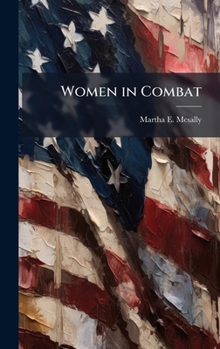Women in Combat
In January 2005, during an interview with the Washington Times on the war in Iraq and Army transformation, President Bush stated: "There's no change of policy as far as I'm concerned. No women in combat."1 Technically, the policy has not changed, but in reality, the nation's policy has not survived contact with the enemy. As Commander in Chief, the President has engaged military power in the war against terrorism on a global scale and the counterinsurgency in Iraq has engulfed both men and women in combat. Operations ENDURING FREEDOM (Afghanistan) and IRAQI FREEDOM (Iraq) are the first major combat operations since hundreds of thousands of new positions in the military were opened to women in the 1990s. Women deployed and fought as fighter, bomber, attack, and helicopter pilots in all the services, in ground combat support positions, and aboard combat and support Navy and Coast Guard vessels. According to the Department of Defense, (DoD) 10,100 women were deployed to Iraq in May 2006, and 1,900 women were deployed to Afghanistan, constituting 8 percent of the total force.2 In total, over 155,000 women have served in Iraq and Afghanistan since 2002.
This work has been selected by scholars as being culturally important, and is part of the knowledge base of civilization as we know it. This work was reproduced from the original artifact, and remains as true to the original work as possible. Therefore, you will see the original copyright references, library stamps (as most of these works have been housed in our most important libraries around the world), and other notations in the work.
This work is in the public domain in the United States of America, and possibly other nations. Within the United States, you may freely copy and distribute this work, as no entity (individual or corporate) has a copyright on the body of the work.
As a reproduction of a historical artifact, this work may contain missing or blurred pages, poor pictures, errant marks, etc. Scholars believe, and we concur, that this work is important enough to be preserved, reproduced, and made generally available to the public. We appreciate your support of the preservation process, and thank you for being an important part of keeping this knowledge alive and relevant.
Related Subjects
History Political Science Politics & Social Sciences Social Science Social Sciences




